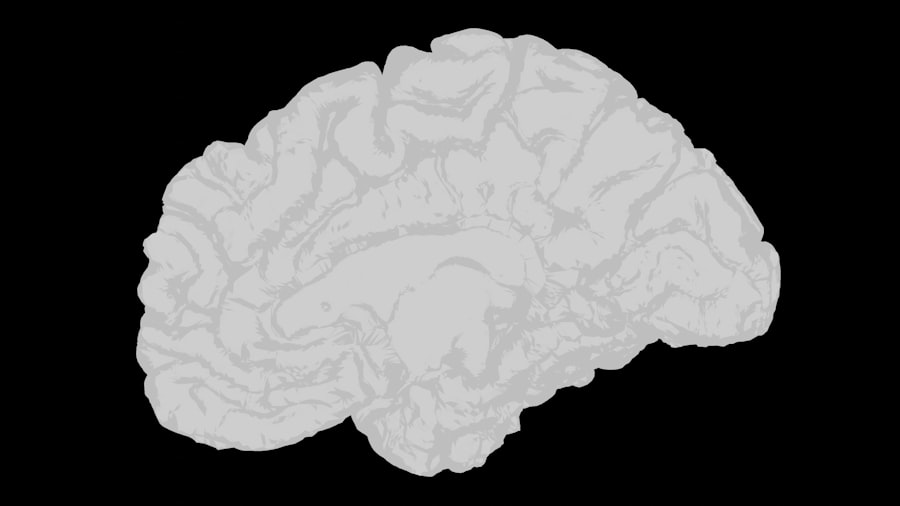The concept of brain plasticity, or neuroplasticity, is a fascinating area of study that reveals how adaptable your brain truly is.
Whether you are learning a new skill, recovering from an injury, or adapting to new experiences, your brain is constantly changing in response to your environment and actions.
Understanding this concept can empower you to take control of your cognitive development and emotional well-being. As you delve deeper into the intricacies of neuroplasticity, you may find it encouraging to know that your brain is not a static organ but rather a dynamic one that can grow and evolve. This means that regardless of your age or past experiences, you have the potential to reshape your thoughts, behaviors, and even emotional responses.
By engaging in activities that stimulate your brain, such as learning a new language or playing a musical instrument, you can harness this plasticity to enhance your cognitive abilities and improve your overall quality of life.
Key Takeaways
- The brain has the ability to change and adapt, known as plasticity, allowing for growth and development throughout life.
- Positive thinking can have a powerful impact on mental and emotional well-being, leading to increased resilience and adaptability.
- Developing a growth mindset involves embracing challenges, persisting in the face of setbacks, and seeing effort as a path to mastery.
- Mindfulness and meditation practices can help improve focus, reduce stress, and enhance overall brain function.
- Cultivating resilience and adaptability involves building the capacity to bounce back from adversity and thrive in the face of change.
The Power of Positive Thinking
Positive thinking is more than just a feel-good mantra; it is a powerful tool that can significantly impact your mental and emotional health. When you adopt a positive mindset, you open yourself up to a world of possibilities. This shift in perspective can lead to improved problem-solving skills, better stress management, and enhanced relationships.
By focusing on the positive aspects of any situation, you can cultivate a sense of hope and resilience that propels you forward. Moreover, the benefits of positive thinking extend beyond mere optimism. Research has shown that maintaining a positive outlook can lead to better physical health outcomes, including lower rates of cardiovascular disease and improved immune function.
When you consciously choose to focus on the good in your life, you not only enhance your mental state but also create a ripple effect that influences those around you. Your positivity can inspire others to adopt a similar mindset, fostering an environment of encouragement and support.
Developing a Growth Mindset

Embracing a growth mindset is essential for personal development and success. This concept, popularized by psychologist Carol Dweck, emphasizes the belief that abilities and intelligence can be developed through dedication and hard work. When you adopt a growth mindset, you view challenges as opportunities for growth rather than insurmountable obstacles.
This perspective encourages you to embrace learning and resilience, ultimately leading to greater achievements. To cultivate a growth mindset, start by reframing your thoughts about failure and setbacks. Instead of viewing them as reflections of your worth or capabilities, see them as valuable learning experiences that contribute to your growth.
Celebrate your efforts and progress, no matter how small, and remind yourself that persistence is key. By surrounding yourself with challenges and seeking out new experiences, you will reinforce this mindset and unlock your full potential.
Practicing Mindfulness and Meditation
| Metrics | Results |
|---|---|
| Stress Reduction | Decreased levels of stress and anxiety |
| Improved Focus | Enhanced ability to concentrate and stay present |
| Emotional Well-being | Increased feelings of calm and contentment |
| Physical Health | Lowered blood pressure and improved sleep quality |
In today’s fast-paced world, practicing mindfulness and meditation can be transformative for your mental well-being. Mindfulness involves being fully present in the moment, allowing you to observe your thoughts and feelings without judgment. This practice can help reduce stress, improve focus, and enhance emotional regulation.
By incorporating mindfulness into your daily routine, you create space for self-reflection and clarity. Meditation takes mindfulness a step further by providing structured techniques to calm the mind and cultivate inner peace. Whether through guided sessions or silent contemplation, meditation allows you to connect with your inner self and develop a deeper understanding of your thoughts and emotions.
As you commit to regular practice, you may notice increased resilience in the face of challenges and an overall sense of well-being that permeates every aspect of your life.
Cultivating Resilience and Adaptability
Resilience is the ability to bounce back from adversity, while adaptability refers to your capacity to adjust to new circumstances. Both qualities are essential for navigating life’s inevitable ups and downs. By cultivating resilience and adaptability, you empower yourself to face challenges with confidence and grace.
This process begins with acknowledging that setbacks are a natural part of life; they do not define you but rather provide opportunities for growth. To strengthen your resilience, focus on building a support network of friends, family, or mentors who can offer guidance during difficult times. Additionally, practice self-compassion by treating yourself with kindness when faced with challenges.
Embrace change as an opportunity for personal development rather than something to fear. By fostering these qualities within yourself, you will become more adept at handling life’s uncertainties and emerge stronger from each experience.
Setting Clear Goals and Intentions

Setting clear goals and intentions is crucial for achieving personal growth and fulfillment. When you define what you want to accomplish, you create a roadmap that guides your actions and decisions. Goals provide direction and motivation, helping you stay focused on what truly matters to you.
Whether they are short-term or long-term objectives, having clear goals allows you to measure progress and celebrate achievements along the way. To set effective goals, ensure they are specific, measurable, achievable, relevant, and time-bound (SMART). Break larger goals into smaller, manageable steps that make the process less overwhelming.
Additionally, regularly revisit and adjust your goals as needed; flexibility is key in adapting to changing circumstances or newfound interests. By establishing clear intentions for your life, you empower yourself to take proactive steps toward realizing your dreams.
Building Healthy Habits and Routines
Establishing healthy habits and routines is fundamental for maintaining physical and mental well-being. Your daily habits shape your lifestyle and influence your overall quality of life. By consciously choosing habits that promote health—such as regular exercise, balanced nutrition, adequate sleep, and hydration—you create a solid foundation for personal growth.
To build effective routines, start small by incorporating one or two healthy habits into your daily life. Consistency is crucial; over time, these small changes will accumulate into significant improvements in your well-being. Additionally, consider tracking your progress or using reminders to stay accountable.
As you cultivate these habits, you’ll likely notice increased energy levels, improved mood, and enhanced productivity—all essential components for achieving your goals.
Seeking Continuous Learning and Improvement
The pursuit of continuous learning is vital for personal development and fulfillment. Embracing a mindset of lifelong learning allows you to expand your knowledge base and adapt to an ever-changing world. Whether through formal education, online courses, workshops, or self-directed study, seeking new information keeps your mind engaged and sharp.
To foster continuous improvement in your life, actively seek out opportunities for growth in various areas—be it professional skills or personal interests. Engage with diverse perspectives by reading books or attending lectures outside your usual areas of expertise. By challenging yourself to learn something new regularly, you’ll not only enhance your skill set but also cultivate curiosity and creativity that enriches every aspect of your life.
Surrounding Yourself with Positive Influences
The people you surround yourself with have a profound impact on your mindset and overall well-being. Positive influences can inspire you to strive for greatness while providing support during challenging times. By consciously choosing to engage with individuals who uplift and motivate you, you create an environment conducive to personal growth.
Take time to evaluate the relationships in your life; consider whether they contribute positively or drain your energy. Seek out mentors or peers who share similar values and aspirations—these connections can provide invaluable guidance as you navigate your journey toward self-improvement. Additionally, engage in communities or groups that foster positivity; being part of such environments can reinforce your commitment to personal growth.
Overcoming Limiting Beliefs and Negative Self-Talk
Limiting beliefs are often deeply ingrained thoughts that hold you back from reaching your full potential. These beliefs may stem from past experiences or societal expectations but can be challenged and transformed through conscious effort. Recognizing these negative thought patterns is the first step toward overcoming them; once identified, you can work on reframing them into more empowering beliefs.
To combat negative self-talk effectively, practice self-awareness by monitoring your internal dialogue throughout the day. When negative thoughts arise, challenge their validity by asking yourself if they are based on facts or assumptions. Replace these thoughts with affirmations that reinforce your strengths and capabilities.
By consistently addressing limiting beliefs head-on, you’ll gradually build confidence in yourself and open doors to new opportunities.
Implementing Daily Brain-Training Exercises
Engaging in daily brain-training exercises is an effective way to enhance cognitive function and promote mental agility. Just as physical exercise strengthens the body, brain training helps sharpen memory, improve focus, and boost problem-solving skills. Incorporating activities such as puzzles, memory games, or even learning new skills into your routine can stimulate neural pathways and promote neuroplasticity.
Consider setting aside dedicated time each day for brain-training activities—this could be as simple as solving crossword puzzles during breakfast or dedicating an hour each week to learning a new language online. The key is consistency; by making these exercises a regular part of your life, you’ll not only enjoy the immediate benefits but also contribute to long-term cognitive health. In conclusion, embracing the principles outlined above can lead to profound personal transformation.
By understanding the brain’s plasticity, harnessing the power of positive thinking, developing a growth mindset, practicing mindfulness, cultivating resilience, setting clear goals, building healthy habits, seeking continuous learning opportunities, surrounding yourself with positive influences, overcoming limiting beliefs, and engaging in daily brain-training exercises—you empower yourself to create a fulfilling life rich with potential for growth and happiness.
Rewiring your brain for success involves understanding and leveraging the brain’s neuroplasticity to foster positive habits and mindsets. A related article that delves into the intricacies of how our mental frameworks can be reshaped is available on Unplugged Psychology’s website. This article provides insights into the psychological strategies that can aid in transforming thought patterns for personal and professional growth.




